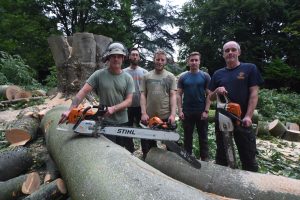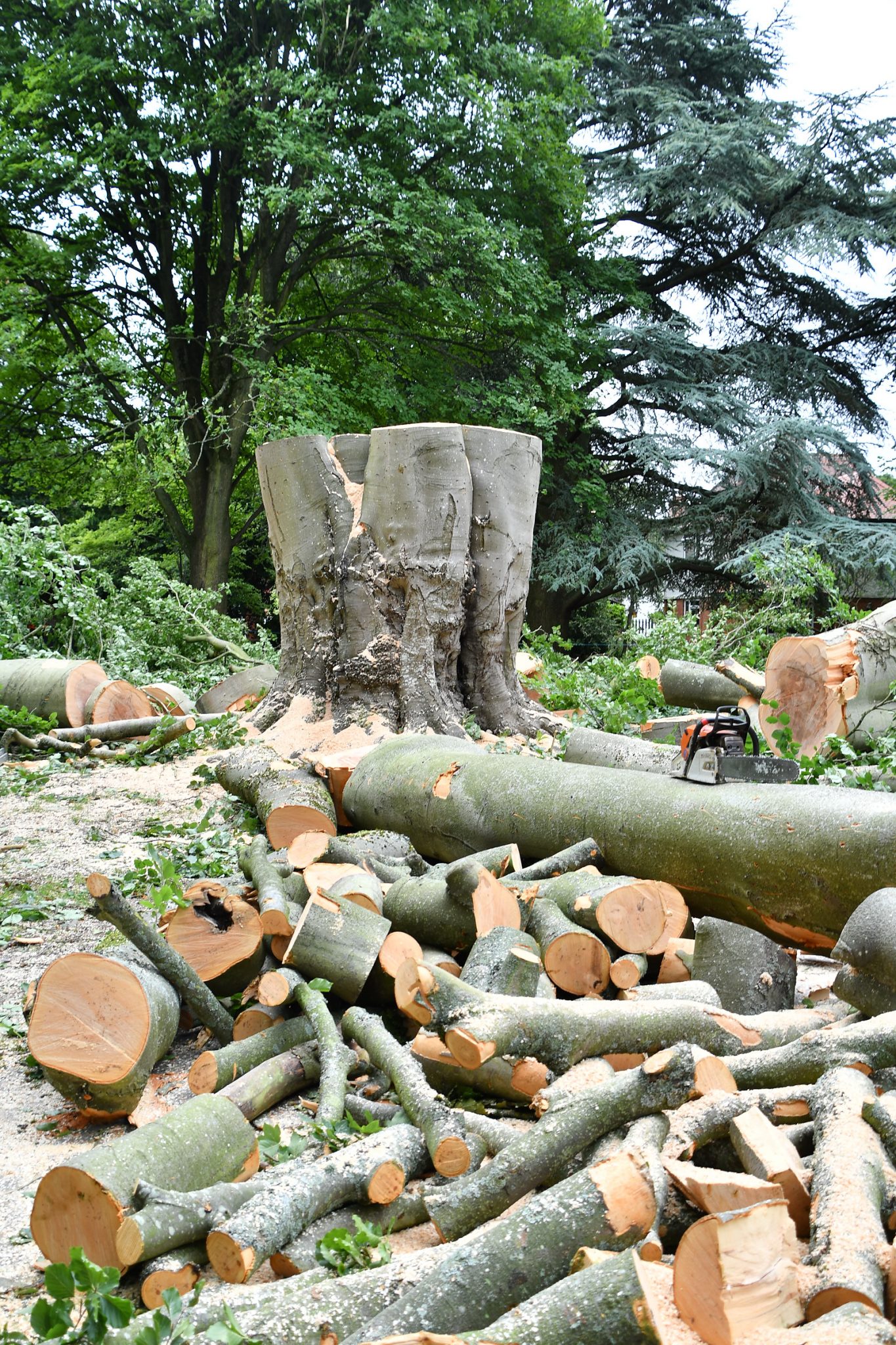A long established tree that has stood guard beside Swindon’s Town Gardens bandstand for more than 180 years has seen its last summer.
The landmark beech, which has been clambered around by generations of children, has recently been found to have become infected by fungi - raising concerns that it might lose branches.

© Calyx Picture Agency
Tree fellers.. or is it five?
The tree was a mere sapling in 1837, the same year that Samuel invented the telegram, Charles Dickens' Oliver Twist was published in serial form and three years before The Great Western Railway reached Swindon and the company decided to build an engine building and maintenance works there.
And so on Wednesday a five-strong specialist team of arboriculturists (tree surgeons) moved into the park to perform the delicate process of cutting it down to size - working at heights with chainsaws they spent the day removing branches in stages.
By the time they were finished, the sizable trunk of the tree was surrounded by neatly felled logs. However, the tree will not be forgotten, with some suggestion that the remaining trunk could be carved into a chair or sculpture.
A Swindon Borough Council spokesman said: “The decision to cut down the beech tree was made after it was found to have Ganoderma bracket fungus, which is a wood decay fungi common throughout the country.
“The fungus causes decay and rot of the main structure of the tree, which is likely to result in branches falling off. Due to the tree’s proximity to the bandstand and key footpaths it posed a potential risk to the public and we were left with no choice but to remove it.
“This is a naturally occurring fungus disease and there is no reason to suspect that other trees are affected, however, we do regularly carry out inspections of all our trees to identify such issues.
“Whenever we are forced to cut down trees we always like to see the timber used wherever possible and we have received a number of requests relating to this tree, which we will consider in conjunction with ward members and the parish council.”









Your Comments
Be the first to comment on this article
Login or Register to post a comment on this article